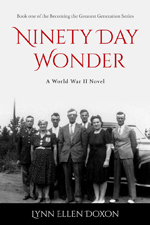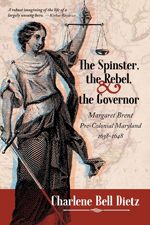In September 2022, nonfiction author Lynn Ellen Doxon branched into historical fiction with her debut novel, Ninety Day Wonder (Becoming the Greatest Generation, Book 1), released by Artemesia Publishing. You’ll find Lynn on apbooks.net and her Amazon author page.
 Tell us about the book Ninety Day Wonder. What were the origins of the story?
Tell us about the book Ninety Day Wonder. What were the origins of the story?
Ninety Day Wonder is the story of a Kansas schoolteacher who was drafted in June of 1941. He had just been accepted into medical school, fulfilling a lifelong dream, when the draft notice came. After basic training, he trained for a position in the coastal artillery and was posted to Fort Worden on Puget Sound. While there he wrangled an opportunity to become a pharmacist, furthering his interest in a medical career. The weekend after he finished that training the Japanese attacked Pearl Harbor. The Army, in immediate need of officers, sends him to OCS, where, in 90 days, he becomes an antiaircraft artillery officer,
The story is based on my father’s experience in World War II. There are a few things in the book that didn’t happen to him — for example, meeting Sarah Gale while at OCS and falling in love, but some of the most surprising things did actually happen to him.
Who are your main characters, and did they surprise you as you wrote their story?
The main character and narrator is Eugene Sinclair. Other characters include Tom Morris, a friend from Kansas who goes off to pilot school as Gene goes to OCS, and Joseph Zook, a 16-year-old Mennonite who runs away from home to join the Army. Captain Henderson is the CO of the AAA Battery, for whom Eugene becomes executive officer, and Lieutenants Brasseux, Carson, Douglas, Edelstein, Sessions, Tilton, and Wright are officers of the battery during at least part of the book. And of course, Sarah Gale Simmons, a young civilian employee of the OCS base. In the original story arc, Sarah Gale would not even be in the third book of the trilogy, but through her letters to Gene and her adventures as she joins the newly formed WAACs, she takes over the book and becomes the favorite character of many readers. When I finish Gene’s trilogy, Sarah Gale will get a book of her own.
Can you give readers a glimpse into the main settings of your novel?
The novel follows Gene from a small town in central Kansas to basic training at Camp Callan (now the Scripps Institute and Torrey Pines Golf course), to Fort Worden on Puget Sound, to Camp Davis on the southern coast of North Carolina, to Fort Bliss (which at the time also included the White Sands missile range), to the Orlando Air Base in Florida and finally, to Jungle Warfare training in Australia. While each is an army base, some are new, some old, and some not even fully formed when Gene arrives.
What are some obstacles you faced while writing Ninety Day Wonder?
I have written three non-fiction books, hundreds of online, print magazine, and newspaper articles, and scientific publications, but this is my first novel. Novels are MUCH harder than anything else I have written. I researched the period, the equipment, the Army, the bases extensively, then had to write the story so that it did not sound like a report on the research. The learning curve was pretty steep, the time in process almost five years, but I finally finished and got it published.
What sort of decisions did you make about including historical figures and events while crafting your novel?
Events are historically accurate. For officers of the rank of colonel and above, I used real names in most cases. I debated how realistic to the Army of the 1940s to make the dialogue. I ended up using words like Jap, Negro, and damn, but avoided the more offensive pejoratives and expletives for the most part.
Was there anything surprising you discovered while doing research for this book?
I was surprised to learn that my father was trained as a pharmacist. I had always assumed his knowledge of medicines came from the fact that he was a chemistry and biology teacher. I also learned that the attitude of the majority of Americans was that we should stay out of the war right up until the Pearl Harbor attack. I discovered that there was a radar in Hawaii that detected the Japanese planes coming in, but the lieutenant those radar operators reported the sighting to thought it was a squadron of American planes that were expected that day and did not pass the report along. I had also been unaware of the frequent Japanese bombing raids on Darwin and other parts of Australia.
What was the most rewarding aspect of putting this project together?
My father spoke very little about his experience in the war, and I think the most rewarding part was learning what he did. This first book follows his experience pretty closely, although I departed from the actual timeline in the second half. The next two books are not so close to his actual experience, but his experiences gave me a strong basis for the story. Simply having the book published and out there is also very rewarding.
When can your readers expect book two?
I had about 240,000 words down on paper and my publisher told me it could not be one novel, so it became a series at that point. I do not feel I did as good a job as I could have at making a suitable ending for the first book, but I made it into three books. I promise a better ending in book two, which will come out in April 2024.
You said you started writing at a young age. At what point in your writing life did you finally consider yourself a writer?
I started telling stories at the age of 3 or 4 and started writing them down in second grade. I came in second in my first writing contest at the age of 18 (and have come in second in numerous others since then — never first). The local newspaper editor published my letters home (slightly edited to remove personal comments) when I traveled around the world on World Campus Afloat at the age of 20. My first book was published in 1980. I wrote a newspaper column called “Yard and Garden” for the Albuquerque Journal for 15 years, and numerous other articles in my position as Urban Horticulture Specialist with the New Mexico Cooperative Extension Service, but all of this was incidental to other jobs and I didn’t consider myself primarily a writer. Early in my retirement, I was making about $1000 a month writing online articles, but I still didn’t consider myself a writer. I didn’t really consider myself a writer until I was deep into the first draft of Ninety Day Wonder (my fourth book) and joined SouthWest Writers. I was surprised to learn that there were other people who considered themselves writers who had much less writing experience than me.
What are you most happy with, and what do you struggle with most, in your writing?
I can tell a good story and hold people’s interest. The plot and characters come easy to me. I am almost never at a loss for words and can quickly get lots of them down on paper. I have the most trouble with writing highly emotional action scenes. Because of my beginning as a scientific and educational writer, I use long sentences, too much passive voice, and excessive description. I have to go back and edit several times before I am satisfied, and Lee Child still beats me hands down every time. I am considering making Sarah Gale’s book a thriller just to challenge myself.
Writers can sometimes get bogged down with writing rules. Do rules ever affect your creativity?
I don’t pay too much attention to writing rules. That was a problem for editors when I wrote the Yard and Garden column. Having read voraciously for almost 70 years, I have internalized many of the rules but I don’t let them get in the way of creativity.
 Su Lierz writes dark fiction, short story fiction, and personal essays. Her short story “Twelve Days in April,” written under the pen name Laney Payne, appeared in the 2018 SouthWest Writers Sage Anthology. Su was a finalist in the 2017 and 2018 Albuquerque Museum Authors Festival Writing Contest. She lives in Corrales, New Mexico, with her husband Dennis.
Su Lierz writes dark fiction, short story fiction, and personal essays. Her short story “Twelve Days in April,” written under the pen name Laney Payne, appeared in the 2018 SouthWest Writers Sage Anthology. Su was a finalist in the 2017 and 2018 Albuquerque Museum Authors Festival Writing Contest. She lives in Corrales, New Mexico, with her husband Dennis.





 KL Wagoner (writing as Cate Macabe) is the author of This New Mountain: a memoir of AJ Jackson, private investigator, repossessor, and grandmother. Kat posts to a speculative fiction blog at
KL Wagoner (writing as Cate Macabe) is the author of This New Mountain: a memoir of AJ Jackson, private investigator, repossessor, and grandmother. Kat posts to a speculative fiction blog at 